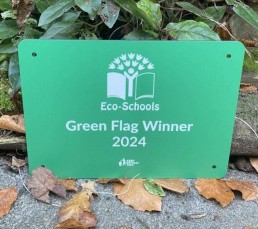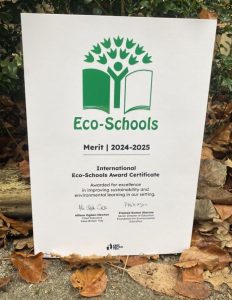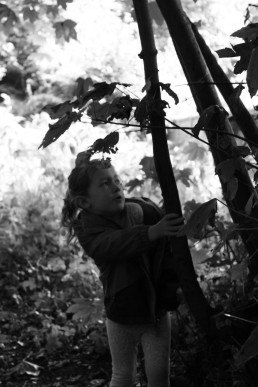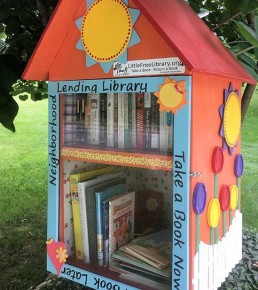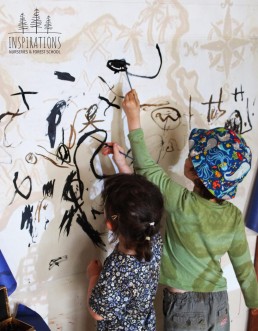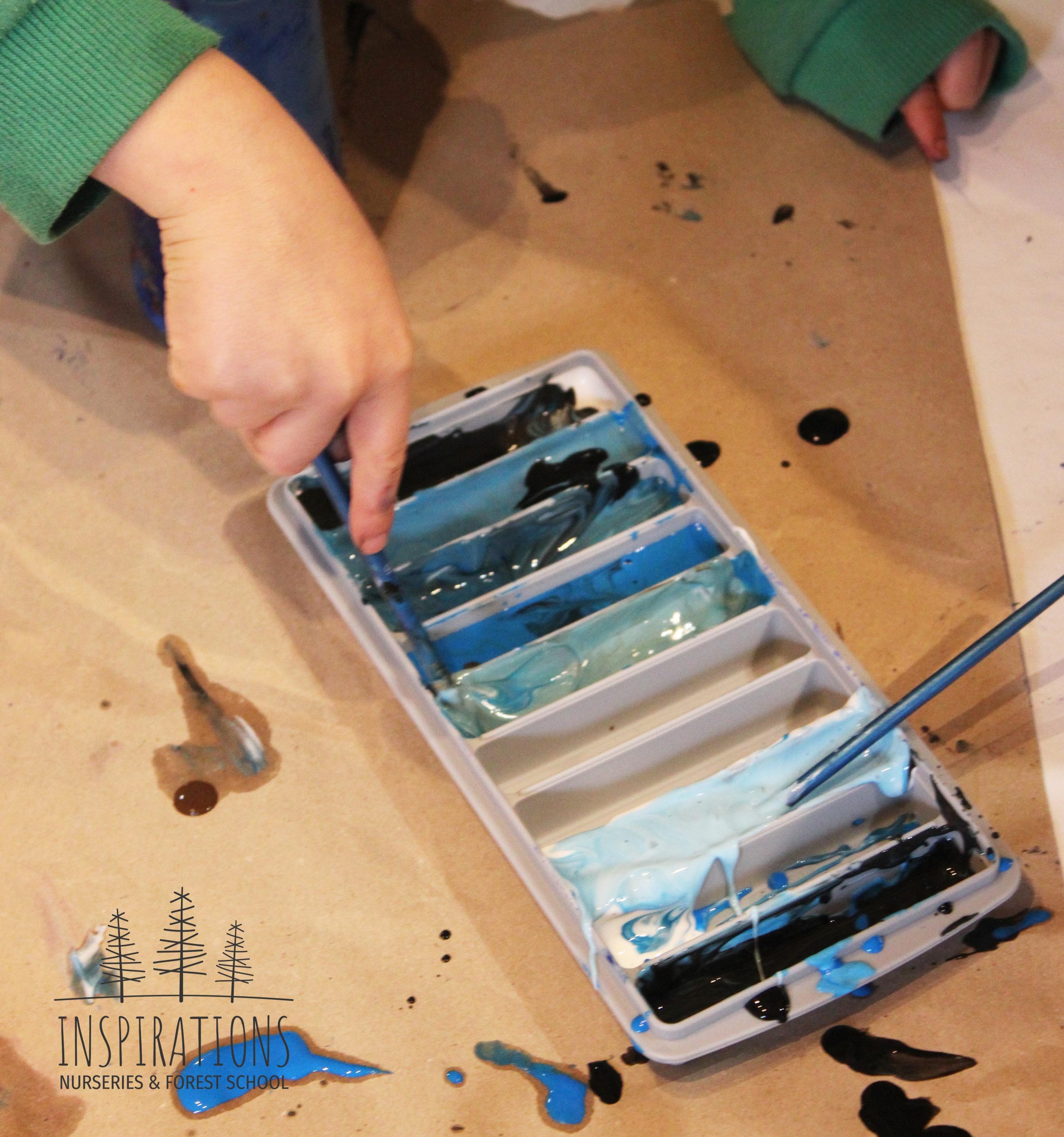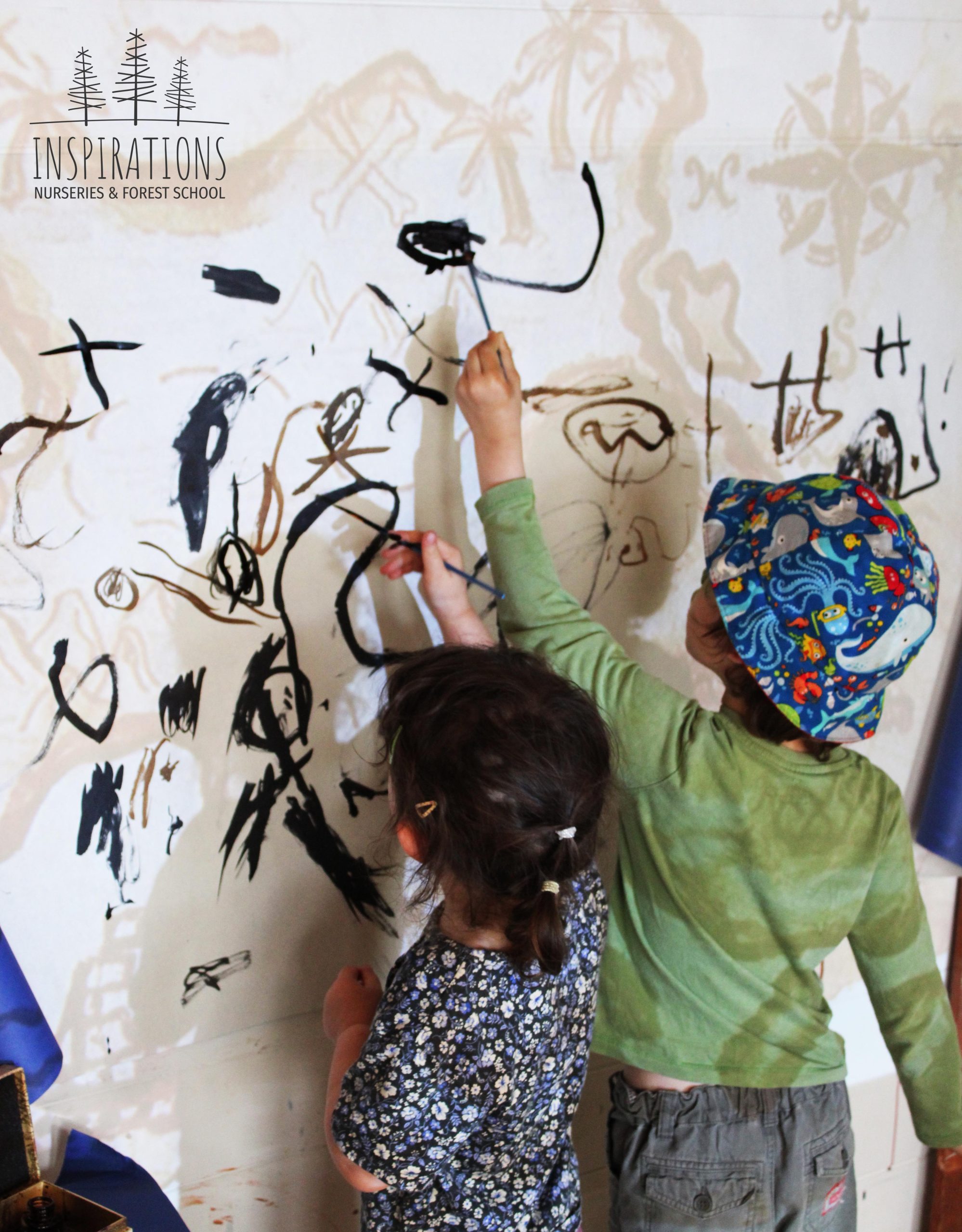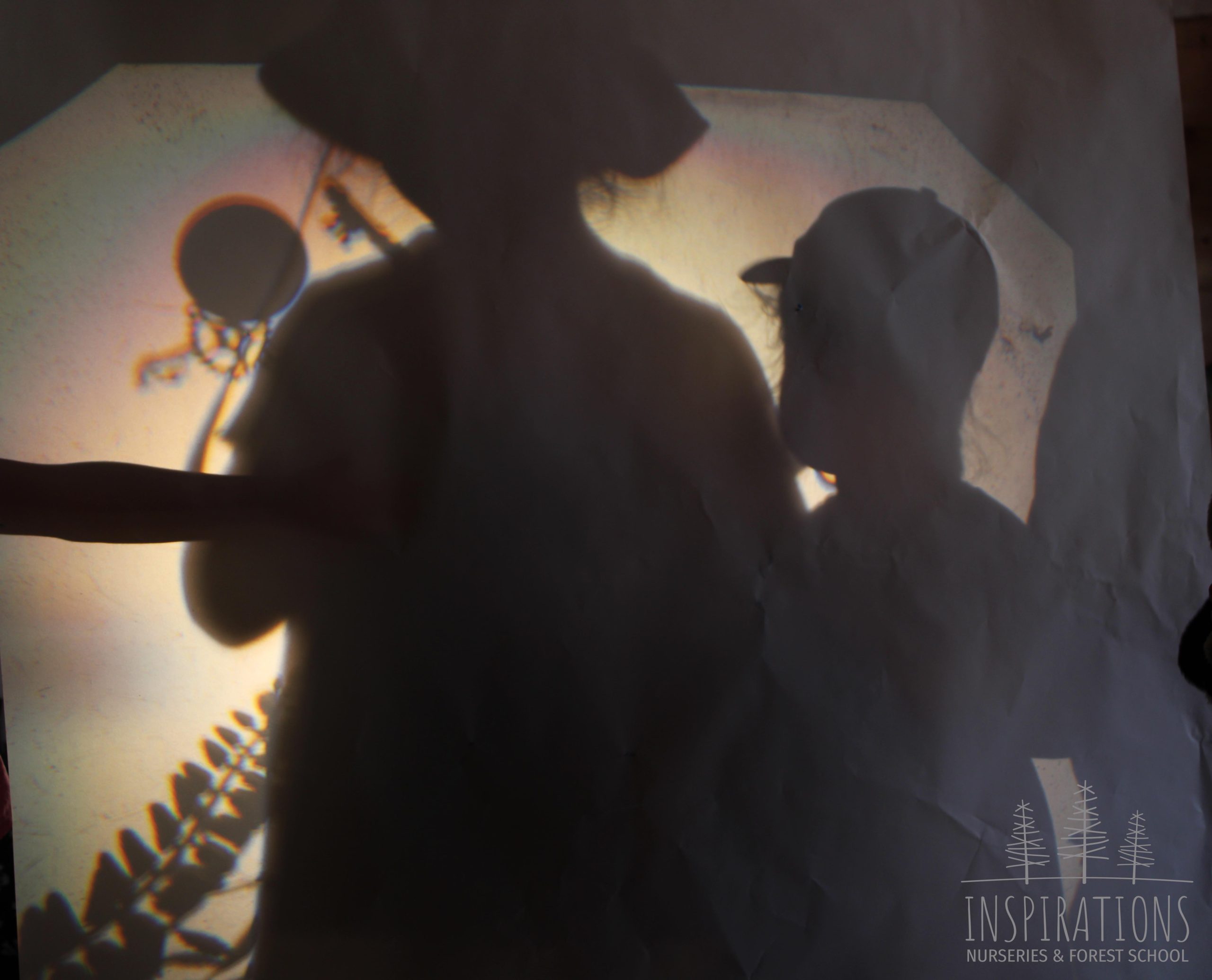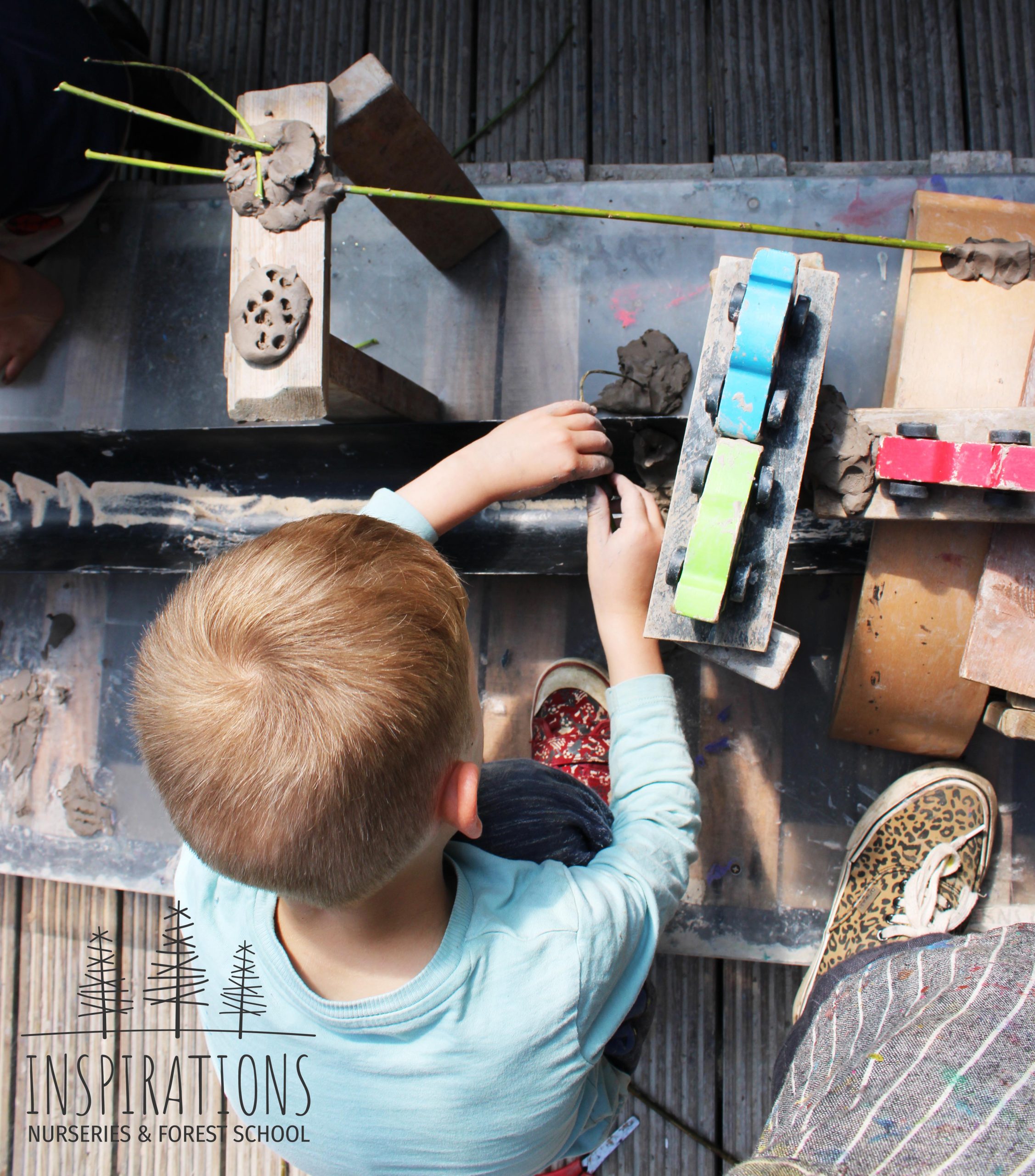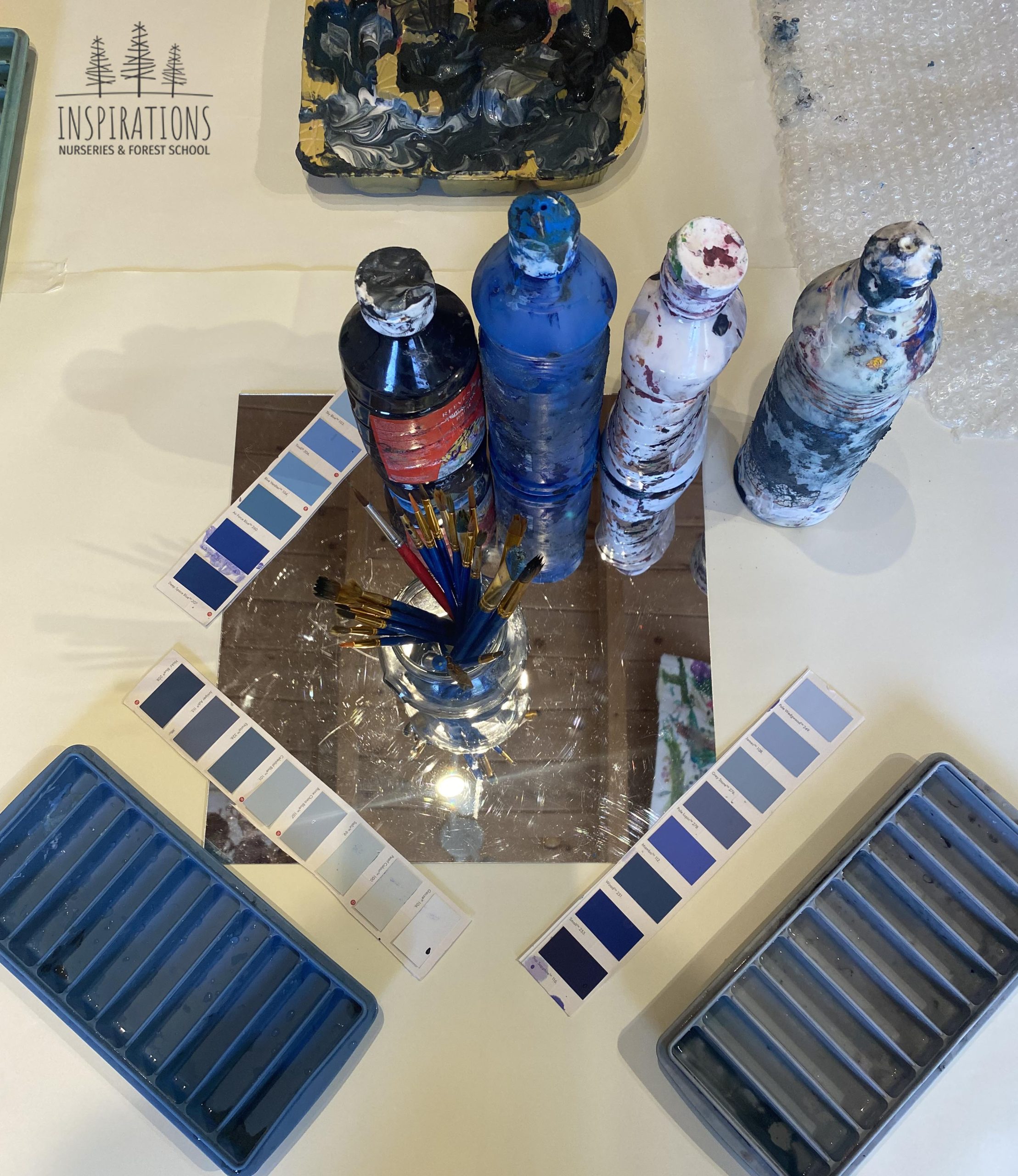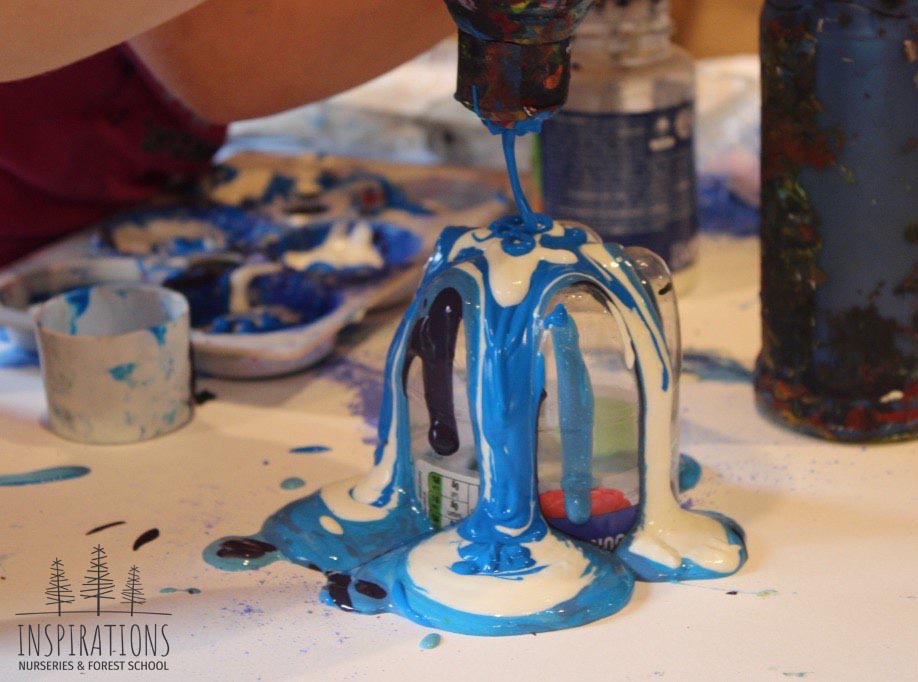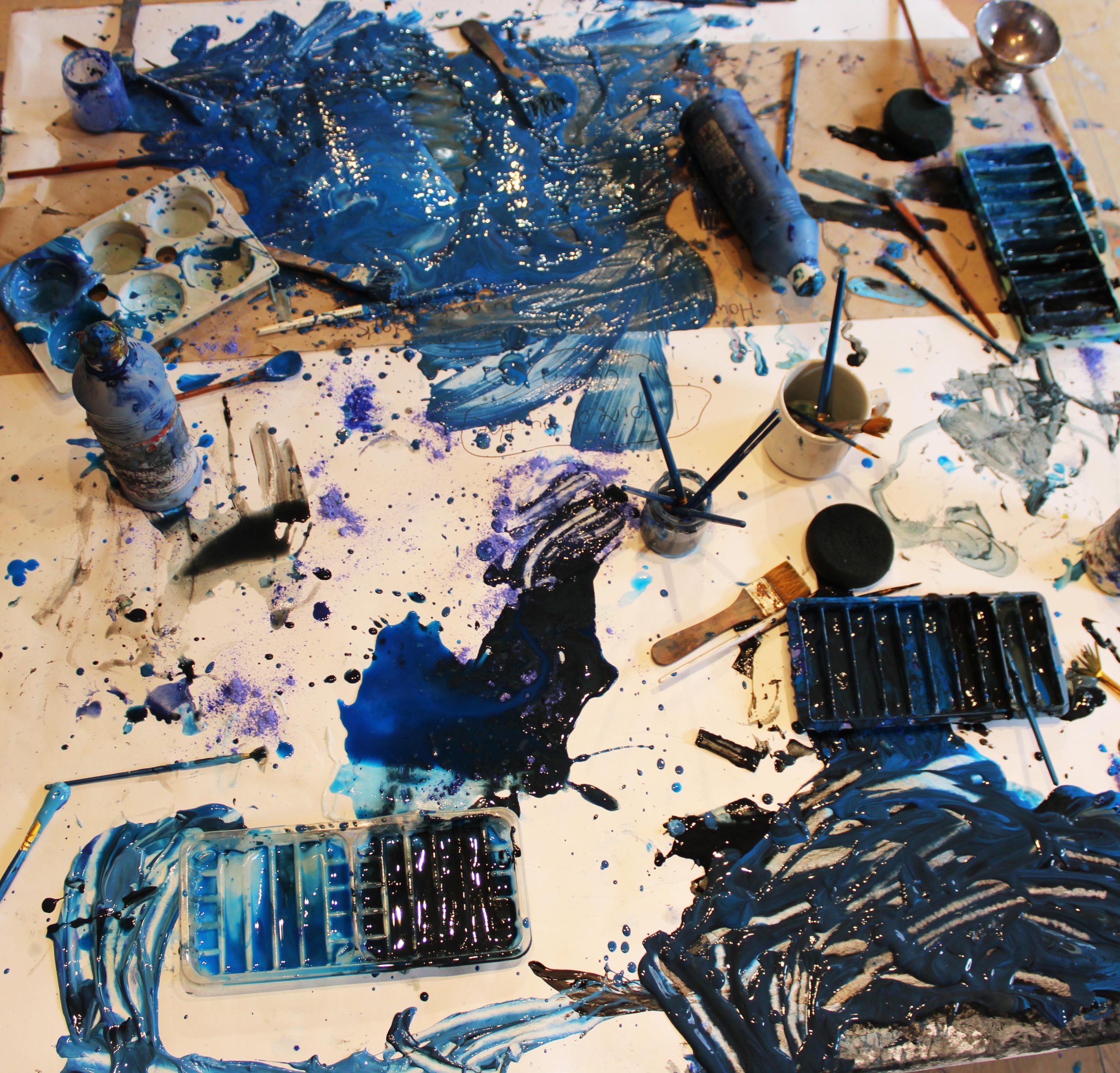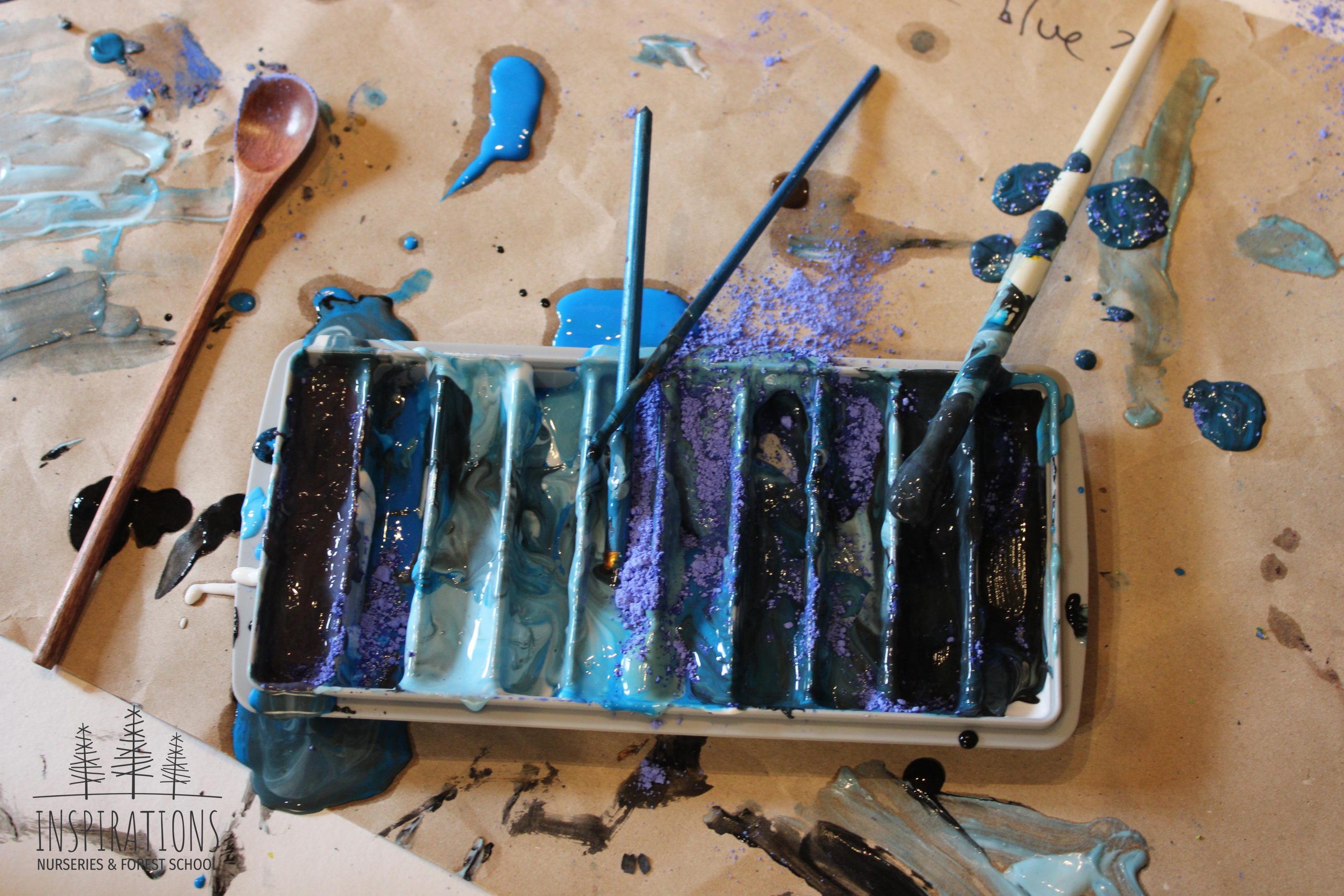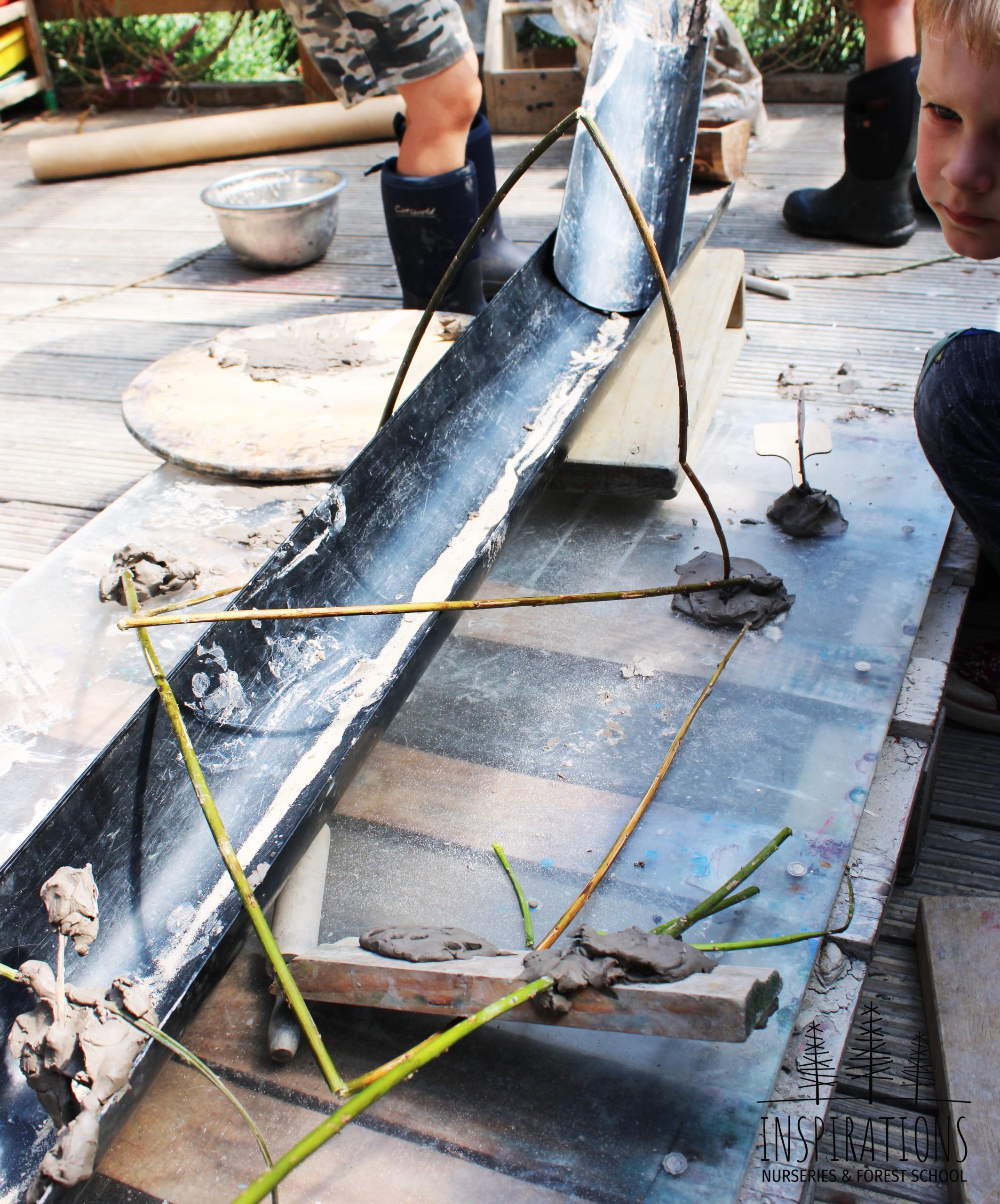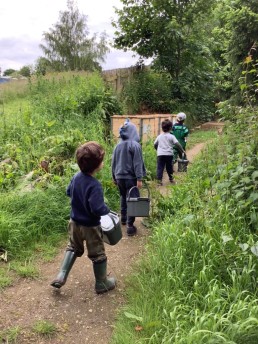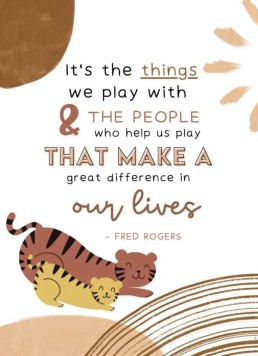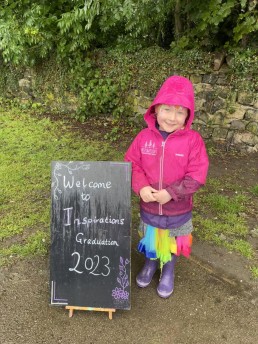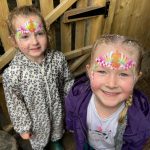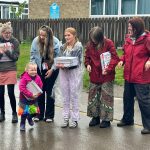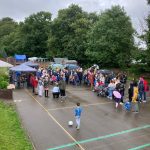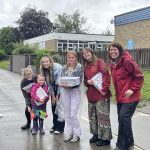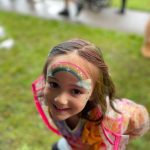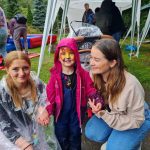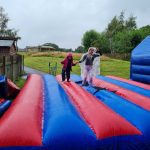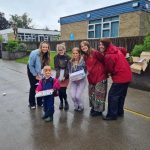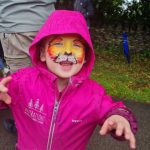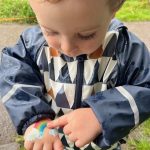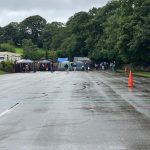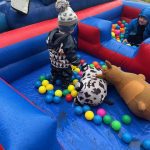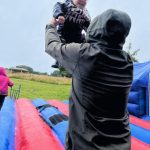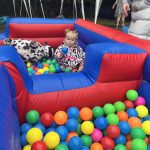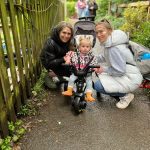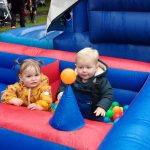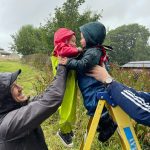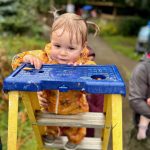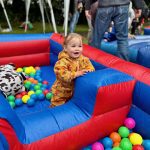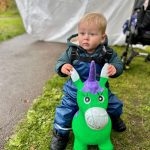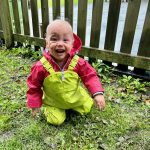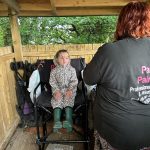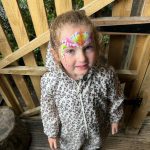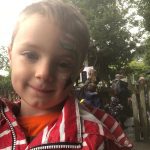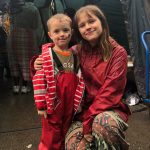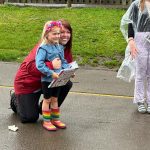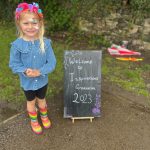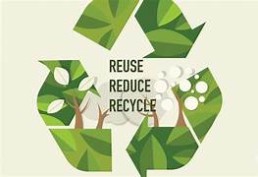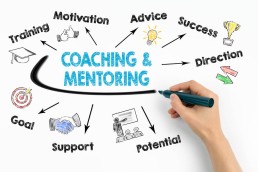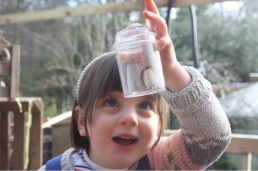Eco-School Green Flag Winner
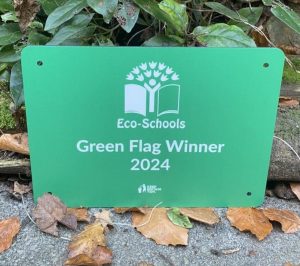
We are proud to announce we have been accredited the Green Flag plaque and International Eco-Schools Award Certificate thanks to the hard work of Tara leading our Eco-School Team, our children and their grown ups. Thank you also to Penny Pinn who has given up her free time to train our staff in composting, and thank you to Leeds FoodWise and Compost Collective.
'Awarded for excellence in improving sustainability and environmental learning in our setting.'
So what exactly have we been doing in our nursery to win this award?
- With the help of Compost Collective we had 3 compost bins installed, which we are now excited to share with West End Primary school. The staff and children have been taking home compost caddies to fill up at home and bring in to compost to do our bit to combat climate change.
- We have been doing the battery challenge, taking in used batteries from the nursery and the community to recycle properly.
- Our Nursery have donated items to the food bank and our pre-school children have taken it to the Horsforth Community Cafe and even helped unpack and prepare.
- We took part in the big bird watch.
- We do seasonal clothes swap events
- The Forest School and our ethos we continue to teach the children to respect nature, look after our planet and be resilient in all weathers.
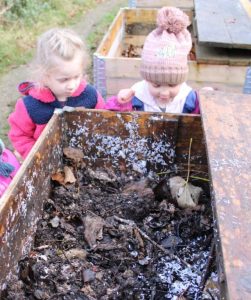
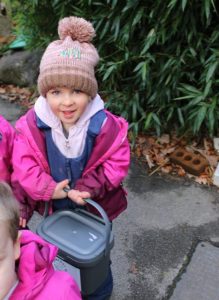
What they said about us
'You have used environmental issues to enrich learning and increase engagement with learning in your nursery and this is something to be very proud of. Your Eco-Committee have used a wide variety of methods to inform their school community about their work including fortnightly newsletters, social media and community links with Friends of Hunger Hill Woods, this shows they take pride in their achievements and are working hard to involve and educate all around them.
You have worked with a variety of different individuals and organisations, relying on their expertise and passion to enrich and inform your Eco-Schools journey. No doubt this was a mutually beneficial experience for all, as these individuals and organisations must have also been inspired by your dedicated Eco-Committee.
We especially loved reading how the young people have impacted on their local environment by helping in the Community Cafe. From the quote provided, parents are clearly appreciative of all your environmental efforts. Staff members should be proud that you have provided young people with a good awareness of environmental issues and strong foundations for them to build on as they progress to school and hopefully continue their journey as environmentalists.
You’ve made an incredible impact in your nursery and local community and serve as inspiration to all. Congratulations on earning the Eco-Schools’ Green Flag with Merit.'
We are very proud of our eco journey so far, but this is simply the beginning. In the meantime keep bringing in your compost caddies and check out and sign up to the Horsforth Climate Action Newsletter here- https://www.climateactionleeds.org.uk/newsletter
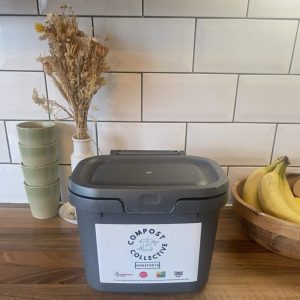
If you don't do so already please feel free to take home your own compost caddy, which you can bring in when full and leave at the pre-school gate for the children to empty.
-Nathalie
New Forest School Ventures
We are excited to now offer a range of Forest School sessions for both adults and children of all ages, lead by our Forest School Leader Daisy.
About your Trainer

Daisy is a Level 3 forest school leader and has worked within several outdoor education and forest school settings across the charity, public, and private sectors. The open-ended nature of forest school is what captures Daisy’s imagination and she loves how learners continually find new ways to use natural objects.
Daisy has a Masters degree in biodiversity and conservation and will use her detailed knowledge to enhance your learning experience. Through studying nature connection, she is aware of the importance of nature for human wellbeing and is a keen advocate for the role forest school can play in this process.
We are offering Home Educations Sessions for children, including SEND sessions and bespoke settings.
https://inspirationsnurseries.co.uk/forest-school-training-and-sessions/
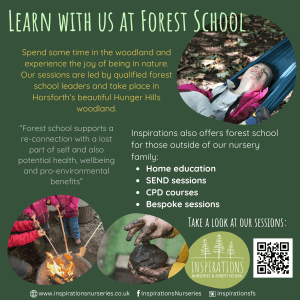
Forest School Training and Events.
Inspirations core values are outdoor play, creativity, and self-directed learning. These values reflect forest school pedagogy and show how outdoor learning is at the heart of what we do here at Inspirations.
Our Forest School Skills for Educational Professionals course offers you the chance to learn more about the forest school ethos and outdoor learning so you can develop your skills and take steps to bring the outdoors into your setting.
Spending one day in a beautiful woodland, the course will cover:
- Introduction to forest school ethos and benefits of outdoor learning
- Understand the importance of nature connection
- Examples of games and activities to use with a class outside
- Introduction to tool use, fires and risky play
- Introduction to reflective practice
Learning with us provides an open and calm learning environment that promotes discussion, conversation, and a relaxed learning pace. You will get to learn about the benefits of learning in nature whilst simultaneously gaining these benefits yourself!
This course is designed for anyone wanting to learn more about forest school and outdoor learning. Whether you are a teacher, TA, early years practitioner, student, or just want to learn more, we welcome you to the woodland.
Our courses may be tailored to your organisation’s needs. If you are wanting to make a group booking for one of our courses, please send an email to daisy@inspirationsnurseries.co.uk
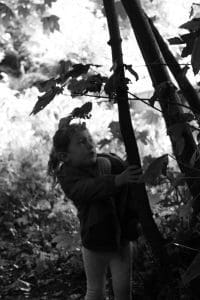
In the News- Parental Engagement
In March of this year a new study about an increase in the number of children starting school who are not “school-ready” which reported that 28% of children in reception year “incorrectly use books (swiping or tapping as if using an electronic device)”. A worrying statistic indeed, and one which questions are children having enough verbal interactions with the adults in their life?
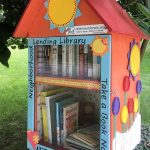
There have been some recent efforts to inject the excitement of the simple joy of books in the community with the free libraries dotted around suburbs and towns. Did you know at Inspirations we also have a lending library in the front entrance?
Learning suffered during lockdown and perhaps this is still having an impact. This article from a couple of years ago now highlights just how much the Pandemic affected our children- https://www.theguardian.com/lifeandstyle/2022/apr/24/life-in-lockdown-held-back-progress-of-under-fives
'Parents spent less time reading, chatting and playing with their children during the pandemic, according to new research by the National Literacy Trust. A quarter said they did not chat with their child every day in 2021, compared with just 10% in 2019, and only half (53%) of parents said they were reading to their child daily, compared with two-thirds in 2019.
And the proportion of parents who said they played with their child at least once a day in the previous week also fell from 76% in 2019 to 72% in 2021. The Trust surveyed more than 1,500 parents with children under five.
Overall, the research found that fewer parents of young children engaged in “home learning activities” – reading, chatting, playing, singing or painting and drawing – in 2021, compared with 2019, despite spending more time in the home with their child due to the pandemic.'
In many ways we need to get back to basics, and that is what we try and do at Inspirations. We have meaningful interactions, promote the joy of reading, teach them to plant seeds and grow vegetables and develop their creativity.
It takes a village to raise a child, and we all have a role to play in this.
Empowering the Child's Voice Through Art
This July, my self (Nathalie from the Art Studio) and Tara took part in an early years conference 'Using the Arts for the Children's Wellbeing and Communication: A holistic Approach'. It was delivered as part of a funded Arts Council Partnership called 'Tuneful Chatter,' and was a wonderful reminder of why we do what we do at Inspirations Nurseries in terms of creativity and the 100 languages of learning.
At the beginning of the conference we were asked to write down 'What do we want for this child' in any given learning opportunity. The answer I wrote down was 'I hope the child feels confidence to experiment with materials and to learn from mistakes so they can build confidence. I hope the child discovers something they love doing'.
So how do we ensure we are doing this at inspirations? This is why the child led approach is so important. In the Art Studio, our purpose build creative space for pre-schoolers, a pirate interest became a common theme for many of the children. It came pretty much from nowhere, but it was our job to follow it, the children were heard, and the room reflected that.
Over the weeks we have explored this topic in many expressive arts, but after creating a collaborative treasure map I stepped back and observed. It became apparent the interest was in the process of creating paint to represent the sea. The real interest here was not at all the end result of the treasure map, but it was the process. So, inspired by the sea, we have spent a whole week now dedicated to mixing shades of blue, and it has kept their attention for such a huge amount of time.
Art is a form of expression
Art is a communication tool; a tool for voice. Our job is to empower that child's voice. When the children in the Art Studio sit with the palettes and paints experimenting with colour, in that moment that is their language of learning; they are being heard; they are getting exactly what they want from the moment. When this happens, we have done our job.
Some of the children used this session to mix paint to make 'blueberry crumble', and pour the paint into biscuit trays, and that is ok. As the educator we do not prescribe outcomes, this is not paint by numbers.
Children have 100 languages of learning and it is our job to match that, not restrict it. When a child is full of potential there is hope and they know that you believe in them.
In order to create these enriching environments we also need to think about the community we are building in our classrooms. Our children pick up on feelings, part of our job in this type of setting is to make the place full of wonderful conversations. Wonderful conversations between staff, animals, each other and to do this we have to understand our selves and be compassionate to our selves and others. Ultimately, Inspirations is a community, filled with deep learning and joy from all.
So what do we want for our children?
'Our task regarding creativity is to help children to climb their own mountains. No one can do more'- Malaguzzi 1988
Thank you to the Doncaster Council and Tuneful Chatter for inspiring conference, and reminding us of the importance of all of the expressive arts in the early years.
-Nathalie
Compost Collective
Inspiring Green Habits
At Inspirations Nurseries, we believe in nurturing not only the minds of our little ones but also instilling in them a deep sense of environmental responsibility. Thanks to Foodwise Leeds our latest initiative; 'Compost Collective' is underway and aims to educate children about the importance of composting and empower them to make a positive impact on the planet, starting from an early age.
Find out more about the amazing Food Wise-

In this blog post, we will delve into the significance of teaching composting to children and how educators play a vital role in fostering a sustainable mindset.
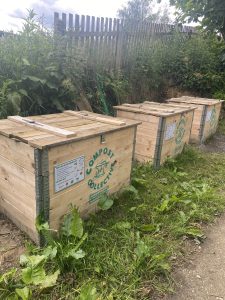
The Importance of Composting:
Composting is a natural process that transforms organic waste into nutrient-rich soil. By composting, we divert organic waste from landfills, reduce greenhouse gas emissions, and enrich the soil for future plant growth. Educating children about composting not only teaches them about the cycle of life but also installs in them an understanding of the interconnectedness of all living things. It helps children develop a sense of responsibility towards the environment and empowers them to take action to protect it.
Starting Early:
Children have a remarkable capacity for learning and absorbing information, making early childhood an ideal time to introduce them to the concept of composting. By exposing children to composting at a young age, we lay the foundation for a lifetime of environmentally conscious choices. Starting early also allows children to witness the entire composting process, from collecting food scraps to observing the decomposition and transformation into nutrient-rich soil. This hands-on experience fosters a deep connection with nature and enables children to appreciate the value of waste reduction and resource conservation.
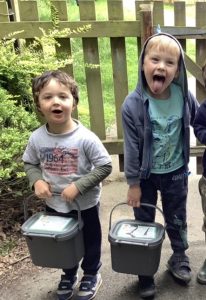
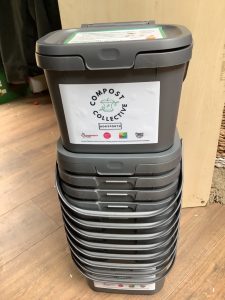
Catalysts for Change: Educators
As educators, we have the privilege and responsibility to shape young minds and inspire them to become environmentally conscious individuals. By incorporating composting into our curriculum, we can create an immersive learning experience that goes beyond the classroom walls. Through interactive activities, storytelling, and gardening projects, we can engage children in meaningful discussions about the importance of composting and its positive impact on the environment. By involving children in the entire composting process, we empower them to become active participants in sustainable practices.
Benefits of Composting Education:
Teaching children about composting provides numerous benefits. Firstly, it instills in them a sense of environmental stewardship, nurturing a generation that cares deeply about the planet's well-being. Secondly, composting education encourages critical thinking and problem-solving skills as children learn about decomposition, nutrient cycles, and the science behind composting. It also promotes teamwork and cooperation as children work together to collect and manage compost materials. Additionally, composting education fosters a sense of responsibility and self-sufficiency as children take ownership of the composting process.
Inspiring a love for nature and sustainable practices in young children is a powerful way to create a greener and brighter future. By introducing composting education in early childhood, we equip children with the knowledge and skills to make a positive impact on the environment. At Inspirations Nurseries, our Composting Project aims to cultivate a sense of environmental responsibility, foster a deep connection with nature, and empower children to become agents of change. Together, let's sow the seeds of sustainability and nurture a generation that cherishes and protects our beautiful planet.
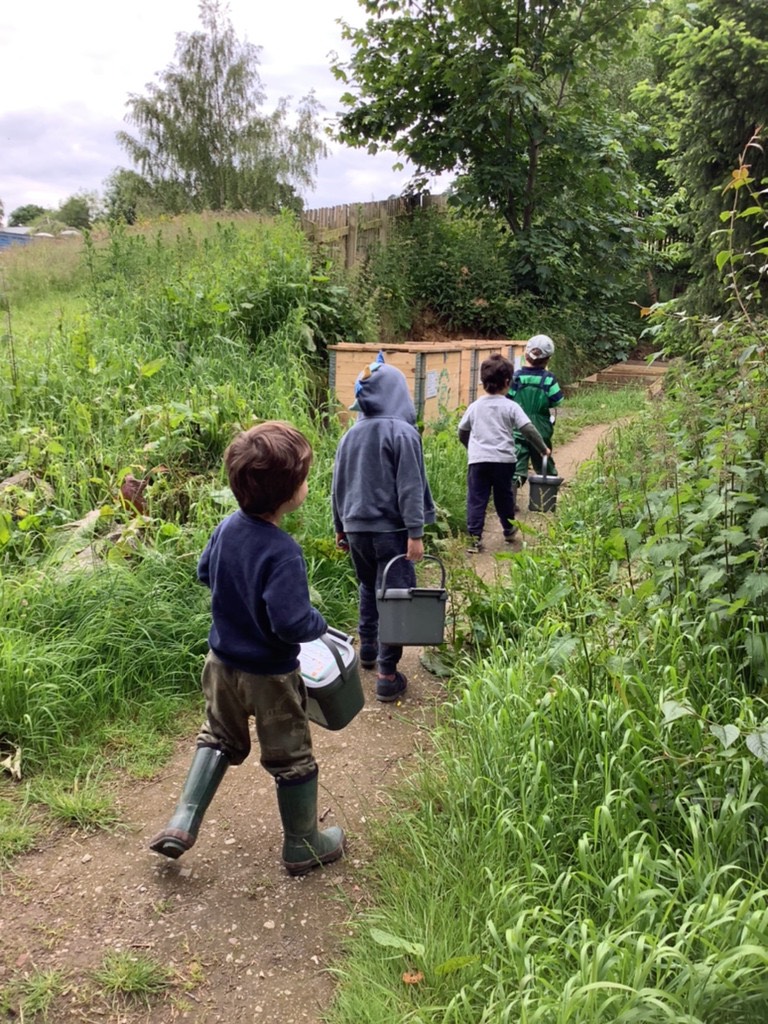
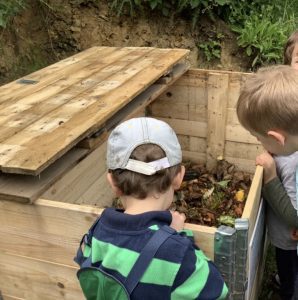

Nurturing Imagination and Creativity
In today’s fast-paced world, where structured learning and organized activities often take centre stage in a child’s life, the value of unstructured, child-led play is sometimes underestimated. The Reggio Emilia approach, an innovative educational philosophy that originated in the town of Reggio Emilia, Italy, places a profound emphasis on the significance of child-led play in early childhood education. In this blog, we’ll explore the importance of child-led play and how it aligns with the principles of the Reggio Emilia approach.
Understanding Child-Led Play
Child-led play, often referred to as free play or unstructured play, is a type of play where children take the lead in choosing what to do, how to do it, and for how long. It occurs when children engage in activities driven by their interests, imagination, and curiosity, rather than following adult-directed instructions. This type of play can involve activities like building with blocks, creating art, exploring nature, or pretending to be characters in imaginative scenarios.
The Reggio Emilia Approach
The Reggio Emilia approach to early childhood education is renowned for its unique perspective on child development and learning. Developed by Loris Malaguzzi in post-World War II Italy, this approach is deeply rooted in the belief that children are capable, curious, and rich in potential. It recognizes that children have their own unique ways of understanding and making sense of the world, and this understanding is a cornerstone of the Reggio Emilia philosophy.
Child-Led Play in the Reggio Emilia Approach
1. **Respect for Children’s Autonomy**: Child-led play is at the heart of the Reggio Emilia approach. Educators in Reggio Emilia schools observe and listen to children carefully, allowing them to express their thoughts, ideas, and interests. This approach respects and values the autonomy of the child.
2. **Emergent Curriculum**: In Reggio Emilia-inspired classrooms, the curriculum is often emergent, meaning it evolves based on the children’s interests and inquiries. Child-led play provides a natural platform for educators to identify these interests and build educational experiences around them.
3. **Nurturing Creativity and Problem-Solving**: Unstructured play fosters creativity and problem-solving skills. When children engage in activities they are passionate about, they are more likely to encounter challenges that require them to think critically and find solutions independently.
4. **Documentation and Reflection**: Reggio Emilia educators document children’s play and learning experiences. This documentation is used for reflection, assessment, and to guide future learning opportunities. Child-led play provides rich content for this documentation.
5. **Collaboration and Social Skills**: Child-led play often involves interaction with peers. Through these interactions, children learn important social skills, such as communication, negotiation, and teamwork.
6. **Environmental Education**: Reggio Emilia-inspired schools often incorporate the natural environment into play. Children are encouraged to explore and connect with nature, fostering a sense of environmental stewardship from an early age.
Child-led play is not merely a leisure activity but a powerful educational tool that aligns seamlessly with the principles of the Reggio Emilia approach. It respects children as competent learners, encourages their creativity, and cultivates a lifelong love for learning. By allowing children to take the lead in their play, we are nurturing the seeds of curiosity, independence, and a deeper understanding of the world around them. In essence, child-led play, as championed by the Reggio Emilia approach, is an investment in a brighter, more imaginative future for our children.
Summer Party
Rain or shine, its party time !!!
Although the weather decided to change its tune, all of us at Inspirations loved this years summer party.
We had 32 school leavers this year, who all dedicated a song to their families and friends called ''I'm ready to go'', and we all had a tear in our eyes. There was also an amazing face painter who joined in on the fun named Paula Paintpot who has a small business in Horsforth. Alongside all of that, there was a soft play an bouncy castle for the children to enjoy and lots of gazebos due to the weather, where activities took place in such as bubble and book mark making, facilitated by members of staff from Inspirations. All the food and drink was provided by Inspirations and by the end there wasn't even a cucumber left!
We are all so thankful for everyone who came and enjoyed this fun filled day with us, we cannot wait for next year and to all the children moving on to a new beginning, we will miss you all and wish you the all the best.
Reduce Reuse Recycle

Welcome to our Inspirations Eco- school blog.
We can’t wait to share all our activities and eco-projects that will be happening in our setting.
The Early Years is a crucial time to install a love and respect for the environment in our children and
we are so lucky at Inspirations to have the perfect environment to do this. We are committed to
providing our children with a green and sustainable education.
Our Forest School is offered all year round as part of our daily pre-school activities. Between these
off-site sessions forest school activities take place on site around our veg garden, wildlife pond and
within our extensive grounds. We have implemented various eco-friendly practices to reduce our carbon footprint by encouraging reusable water bottles, recycling paper, taking part in this year’s Big Battery Hunt, and even making our own paper!
Our outdoor area is a nature inspired learning space. Our children have enjoyed making bug hotels
to provide a safe hideaway for wildlife. Our well-built hotels can shelter anything from hedgehogs to
toads, solitary bees to bumblebees, ladybirds to woodlice.
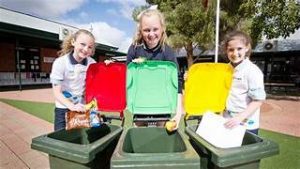
We also participated in Plant life's annual campaign No Mow May. Educating our children on the
importance of boosting flowers, and nectar, available to pollinating insects such as bees, butterflies,
and moths. This then also allows spring flowers to set seed and plants to establish themselves in
advance of the summer.
At Inspirations we believe that by introducing eco-friendly and environmental education at an early
age, we are nurturing a generation of responsible and environmentally conscious citizens. Our vision is that all our children grow up with an understanding of the impact their actions have on the planet and are developing a sense of responsibility towards it.
We are so excited to be starting our eco-school journey in the new academic year, working towards
our first Eco-Schools Green Flag. We also have a community project that we are so excited to get
involved with and can’t wait to share with you.
Together, we can make and create a greener and more sustainable future.
Tara Slade.
Coaching vs Training
What is the difference coaching vs training?
Training is designed to increase knowledge and skills. Coaching is designed to increase self-awareness about attitude, behaviors, choices, and development needs.
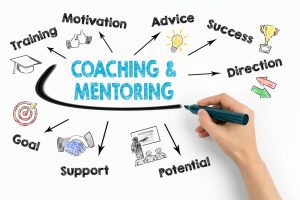
What does it look like in practice?
Training and mentoring are about the transferring of knowledge from teacher to student.Coaching is about enhancing, supporting, and facilitating the practitioner to step in and be actively engaged in their own growth and knowledge. Drawing out the skills and training they already have.
Many practitioners have a wealth of knowledge and so the early years training might not be best for them. Since, and during the pandemic online training has become very popular and lots of companies provide many wonderful courses. We all seem to have lots of certificates and are totally aware of the importance of our Continuing Professional Development (CPD) but are we seeing it in practice?
This is where coaching comes in. Coaching is about working alongside everyday practitioners in the setting, to implement training that they already have. It also provides the opportunity for the practitioner to get a huge amount of knowledge and expertise delivered in the moment.
The obvious drawback with coaching can be the cost! It can vary in price and can be expensive. Settings need to look at the current qualifications and skills they already have and build from there. Are we seeing those skills in practice? If not, coaching needs to be considered. As a trainer this is something I want to implement within our setting. Sharing and showing our skills, knowledge and experience should be key for development.
Coaching is also a wonderful way for positive role modelling to be demonstrated. Many factors influence the behaviour of children in early years settings. The behaviour of people who work closely with children has a great effect and influence. We all cope differently in stressful situations, so having a person to coach and mentor you through challenging times is invaluable.
We want to develop a coaching culture at inspirations. Where everyone feels valued and supported. A coaching culture improves the way we are with each other, but also our interactions with the children. At its core, it is about helping people get from where they are to where they want to go. Whether privately or in a group, coaching empowers people to increase their self-awareness and self-esteem.
Tara Slade
The importance of STEM/STEAM learning in EYFS (Science, Technology, Engineering, Art and Maths)
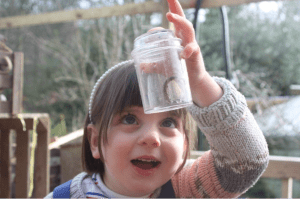
Young children are the ultimate sources of wonder and natural curiosity, with limitless drives to explore. They are the world's natural problem solvers, seeking new and exciting challenges and ways to ‘do’ and improve things. They predict outcomes, test their ideas or questions, spot patterns, estimate and evaluate critically. Through incorporating aspects of STEAM into our child-led-play environment, children are encouraged to develop their resilience and to communicate, work collaboratively and to make compromises.
Each of these skills are aspects of the EYFS Characteristics of Effective Learning. At Inspirations Nurseries I believe that STEAM is naturally embedded in our ethos and pedagogy and should be in all early years education and settings.
STEAM is a multidisciplinary and holistic approach to teaching these subjects, which is what our provision is based on, the areas where learning overlaps. Our outdoor setting/classrooms, art studios and child-led learning approach already provides a rich STEAM enabling environment where children can experiment, explore and have a wonder for their world.
Science is fully embedded in our provision: within the daily and seasonal links to nature, cycles (tadpoles/chicks/weather/water/decomposition) and the equilibrium needed for different types of energy (their transfers and ‘cause and effect’). It is in chemical reactions, materials and their properties, in temperature, size, force and motion.
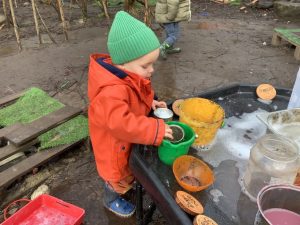 We support our children to experiment with ‘cause and effect’, providing sensory experiences with construction and creative media resources, using containers, utensils and other tools for transforming materials from solids to liquids. We use textured materials and ramps with vehicles to investigate the speed and force of objects in a developmentally and appropriate way.
We support our children to experiment with ‘cause and effect’, providing sensory experiences with construction and creative media resources, using containers, utensils and other tools for transforming materials from solids to liquids. We use textured materials and ramps with vehicles to investigate the speed and force of objects in a developmentally and appropriate way.
In the last few weeks, the children in our toddler room have been blending, stirring, whisking silly soups and potions. They have been measuring ingredients when making pancakes and looking at the capacity of containers in the water trays. Our pre-schoolers have been using magnifying glasses to observe various "minibeasts" collected from various locations around nursery, whilst extending their interest of digging and improving their fine motor skills.
Technology, and tools like projectors, cameras, microscopes, sensory toys, lights, mark making and cutting tools, are part of our continuous provision. We also use online platforms and apps to provide learning opportunities for children to record and observe. Technology helps children to make discoveries and record findings, to explore the consistency, composition and uses of materials and resources.
We have a nursery full of budding engineers, and architects who daily stack, design, construct, connect, and build. They make houses, towers, bridges, and roads for their vehicles and containers, traversing and transporting which extends their own learning journey. As children play, staff promote STEAM in their interactions, provocations and questioning.
Our resident atelierista, provides a wealth of opportunities for extending STEM subjects and skills within the arts and creative play. A curriculum incorporating the arts has been proven to increase creativity, academic performance, motor skills, while enhancing visual learning and boosting higher decision-making and critical thinking skills.
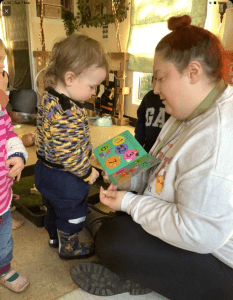 Mathematical literacy is enriched daily through singing and stories. Our environment and the continuous provision of resources, such as containers, funnels, measuring cylinders and loose parts, allow opportunities to compare size, capacities, volumes as well as categorisation of shapes and colour.
Mathematical literacy is enriched daily through singing and stories. Our environment and the continuous provision of resources, such as containers, funnels, measuring cylinders and loose parts, allow opportunities to compare size, capacities, volumes as well as categorisation of shapes and colour.
STEAM takes STEM to the next level by including the process of innovation and creativity. The integration of these principles through the arts fosters a generation of future innovators who can link their learning and skills together, removing limitations and replacing them instead with wonder, critique, inquiry, and innovation.
Kellianne Moulton
